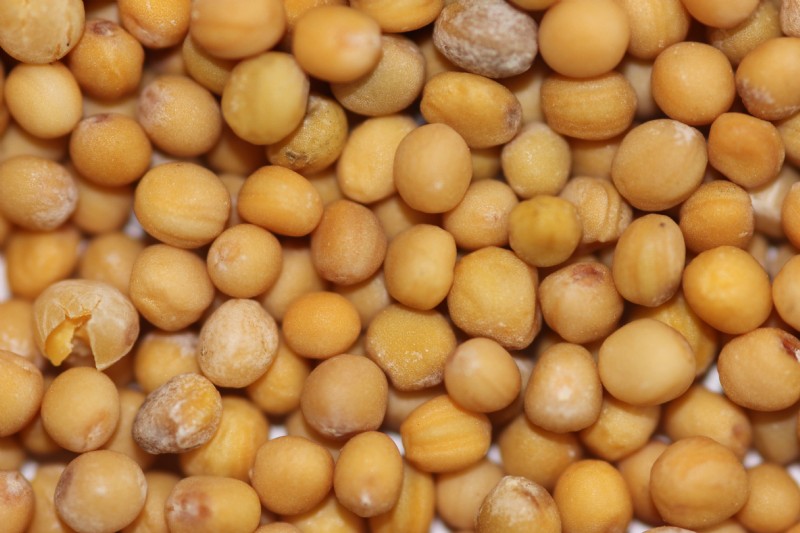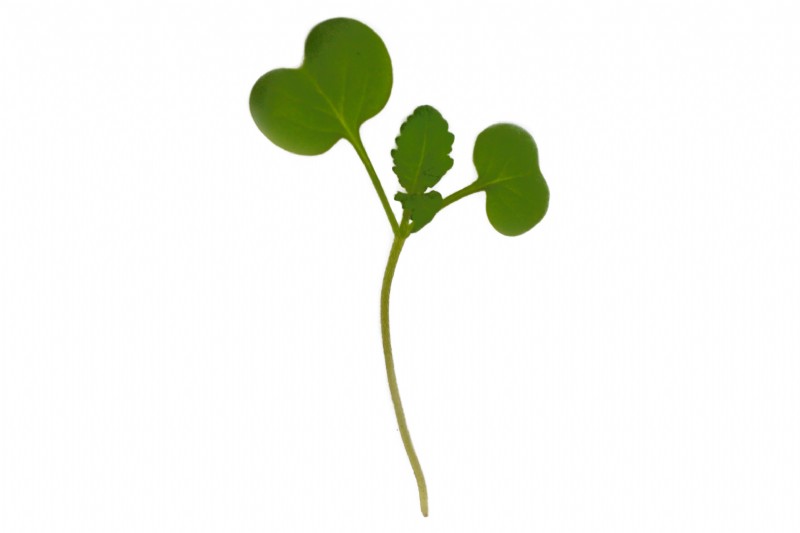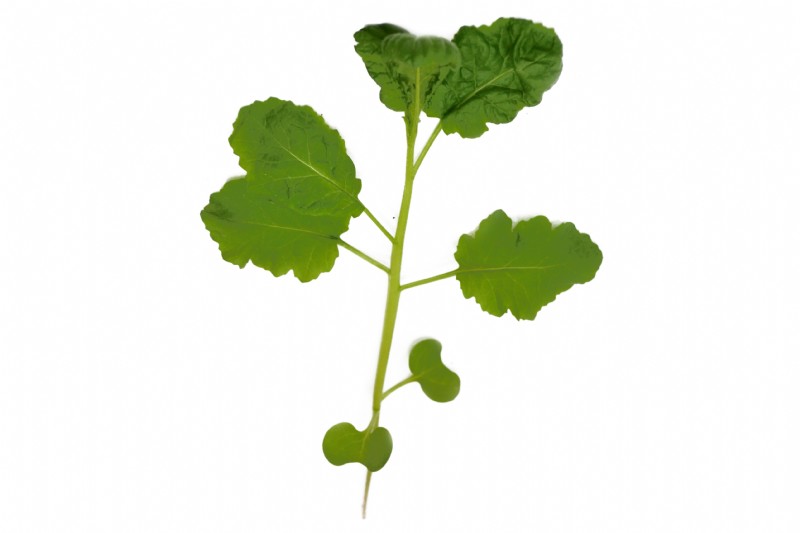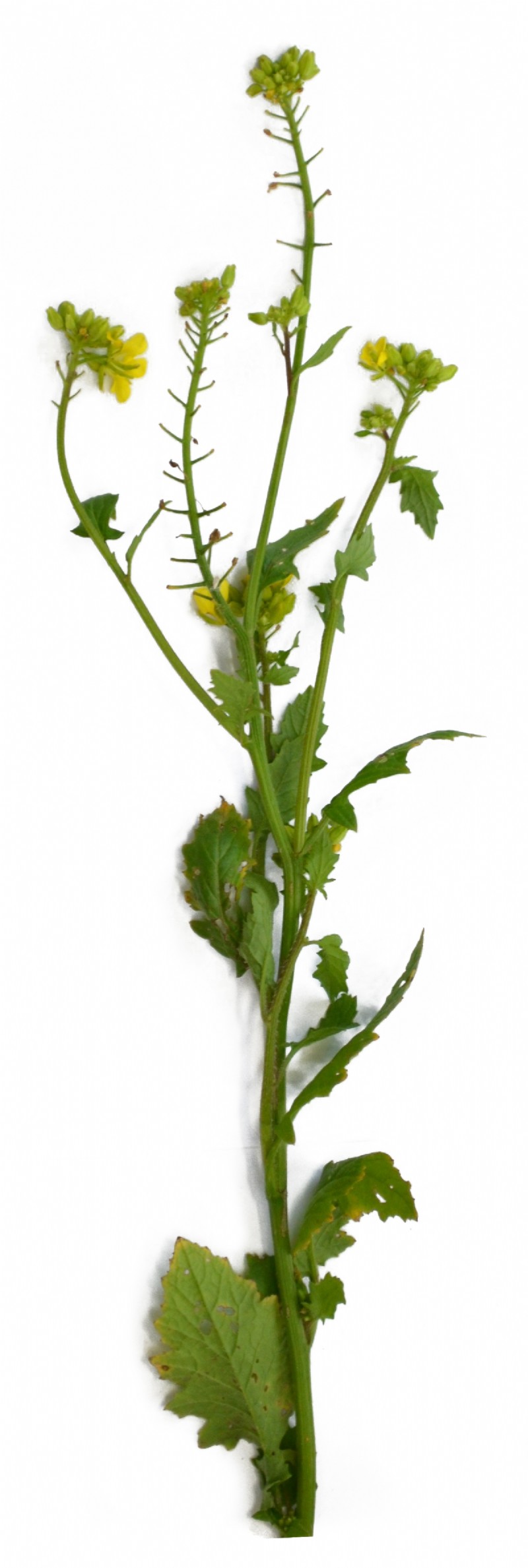Mustard
Mustard is a rapidly growing, high biomass, nitrogen lifter for growing over the summer. It is one of the quickest growing, green manuring species and is very good at suppressing weeds.
Uses
Used for creating short term green cover and game cover.
Persistence
Mustard is an annual species, it has very short persistence and can start to flower after 4-6 weeks. Reaching full growth in 10 weeks.
Strengths
An N holder. Mustard rapidly produces large amounts of biomass. Mustard is vigorously competitive against weeds from an early stage and most mustard crops have very few weeds. Some varieties are used for the control of pests in soil through bio-fumigation. In terms of cost it is one of the most economic green manure species.
Frost Tolerance
Mustard's frost tolerance is relatively poor, with leaves breaking down after a few mild frosts. This can be useful as it allows the crop to be easily incorporated.
Yield
5t DM per ha on good soils.
Sowing Rate Advice
8kg per acre / 20kg per ha
Sowing rates are variable if covering large areas.
Mixture Sowing Rate Advice
0.5 - 2kgs per acre / 1.25 - 5kg per ha.
Mustard is aggressive and can smother out other species in a mixture if it is included at a high rate.
Ideal Sowing Time
Either autumn or any time after March as a short term crop.
Management
It is not usual practice to top mustard, except immediately prior to incorporation. If sown in spring, flea beetle can hamper the establishment, although most crops will grow through this, due to the speed of early establishment. As with all brassicas, pigeons can cause devastation at any stage. It is important to bear in mind that mustard is both susceptible and a host to club root, so thought should be given to the rotation if other brassicas like OSR or Sugar Beet are grown.
Distinguishing characteristics
Seed
This rounded seed is a pale yellow colour, with a dull, matt texture. It is approximately 0.3mm in size.
Seedling
Mustard produces a pair of heart shaped, rounded, waxy cotyledons. The edges of the cotyledons are smooth. The plant quickly produces the first true leaf, which is larger with serrated margins.
Flowering Plant
Normally a rich green colour, with a fleshy hollow stalk.
Rough and hairy to the touch.
The leaves are lobed and angular, with toothed margins.
The flowers are a yellow to pale yellow / white colour.
It grows from a short, stubby taproot.
Additional Info
Average seeds per kg - 167,000.
Works well with
If compaction and drainage is an issue, combining mustard with deeper rooting, brassicas like fodder radish or tillage radish can help.You can find Mustard in the following mixtures
- One Year Winter Bird Food Survival Mixture (CAHL2/AHL2/AB9)
- One Year Winter Bird Food Survival Mixture 50% ORGANIC
- Retrieve Mixture
- Retrieve Mixture 50% ORGANIC
- Summer Green Manure - Early Sown N Fixer
- Winter Cover Crop - Late Sown Winter Cover
- Winter Cover Crop - Late Sown Winter Cover - 50% ORGANIC
- General Purpose Game Mix
- General Purpose Game Mix 50% ORGANIC
- Summer Quick Fix Mix
- Summer Quick Fix 50% ORGANIC
- Summer Green Manure - Early Sown N Fixer - 50% Organic
- FlexiCover One Year Game Mix
- Flexi Game Cover 1 Year Mix 50% Organic
- Multi Species 8 Way Cover Crop (SAM2)
- Multi Species 8 Way Cover Crop (SAM2) 50% Organic
- Quick Growth Cover Crop (SOH2/SOH3/CSAM2/SAM2)
- Quick Growth Cover Crop (SAM2) 50% Organic
- Vineyard Soil Improving Brassica Mix
- Vineyard Soil Improving Brassica Mix 50% Organic
- Two Year Wild Bird Food - CEREAL SEPARATE (CAHL2/AHL2/AB9)
- Two Year Wild Bird Seed Mix 50% ORGANIC CEREAL SEPARATE
- Multi Species Cover Crop (SAM2)








